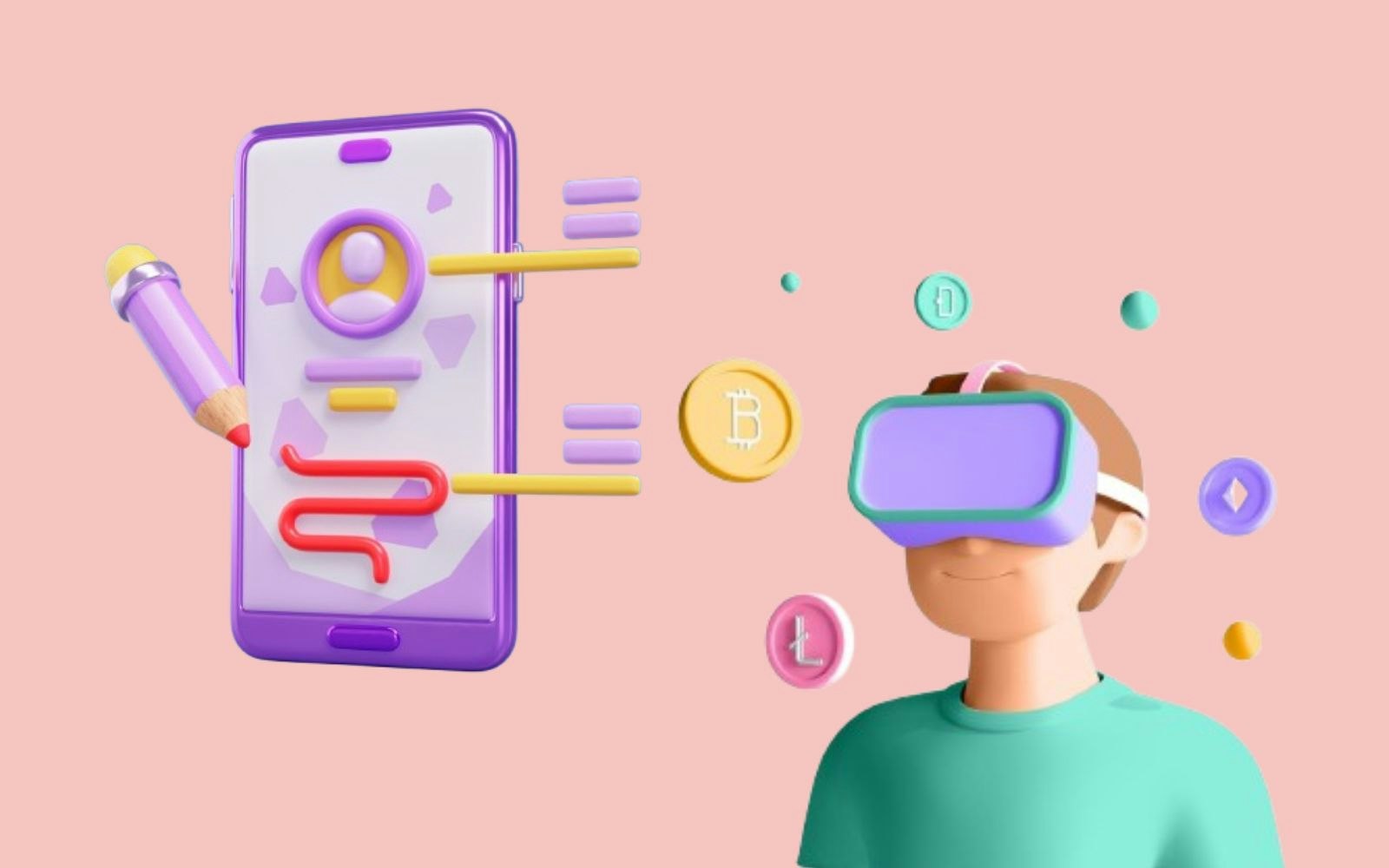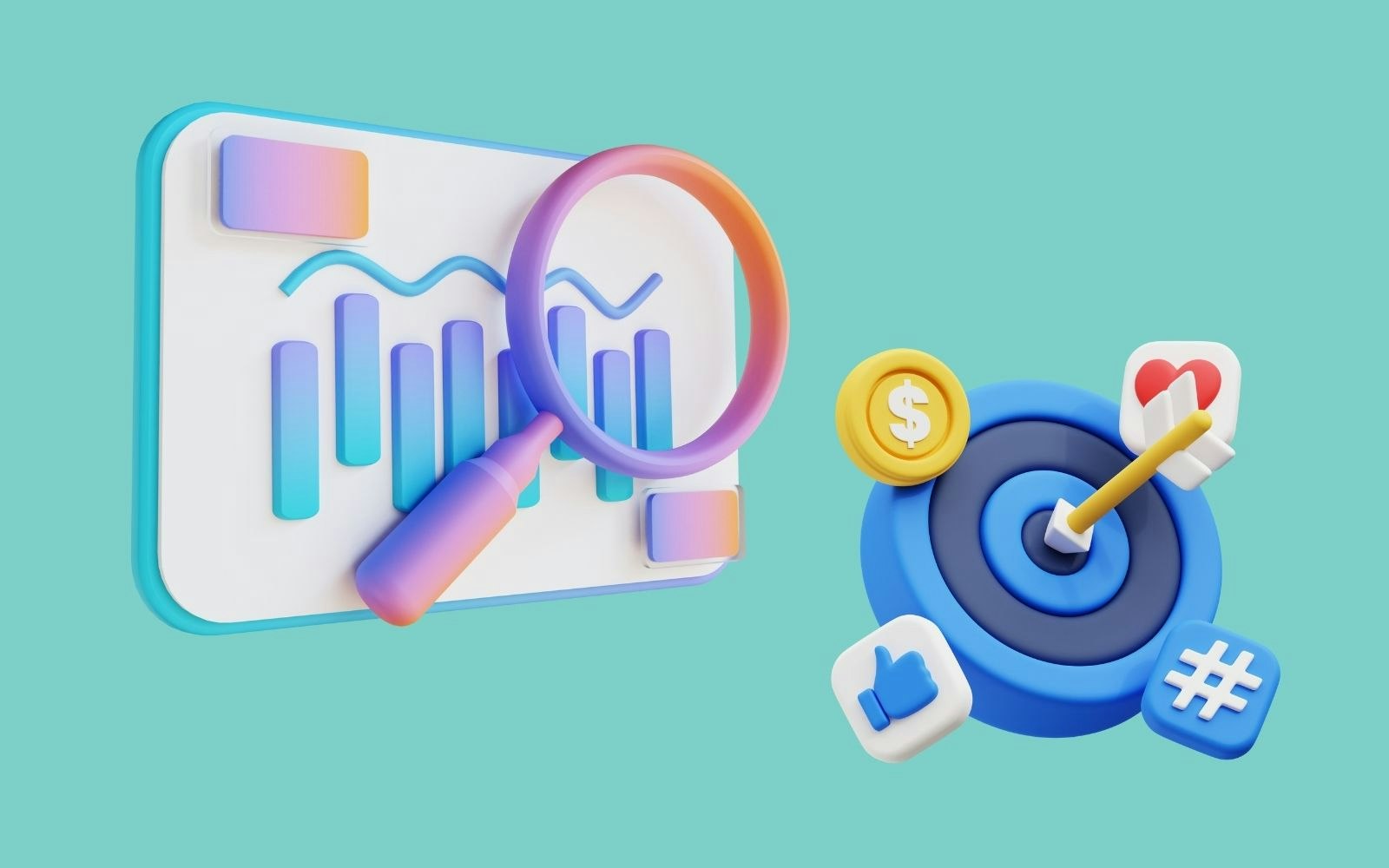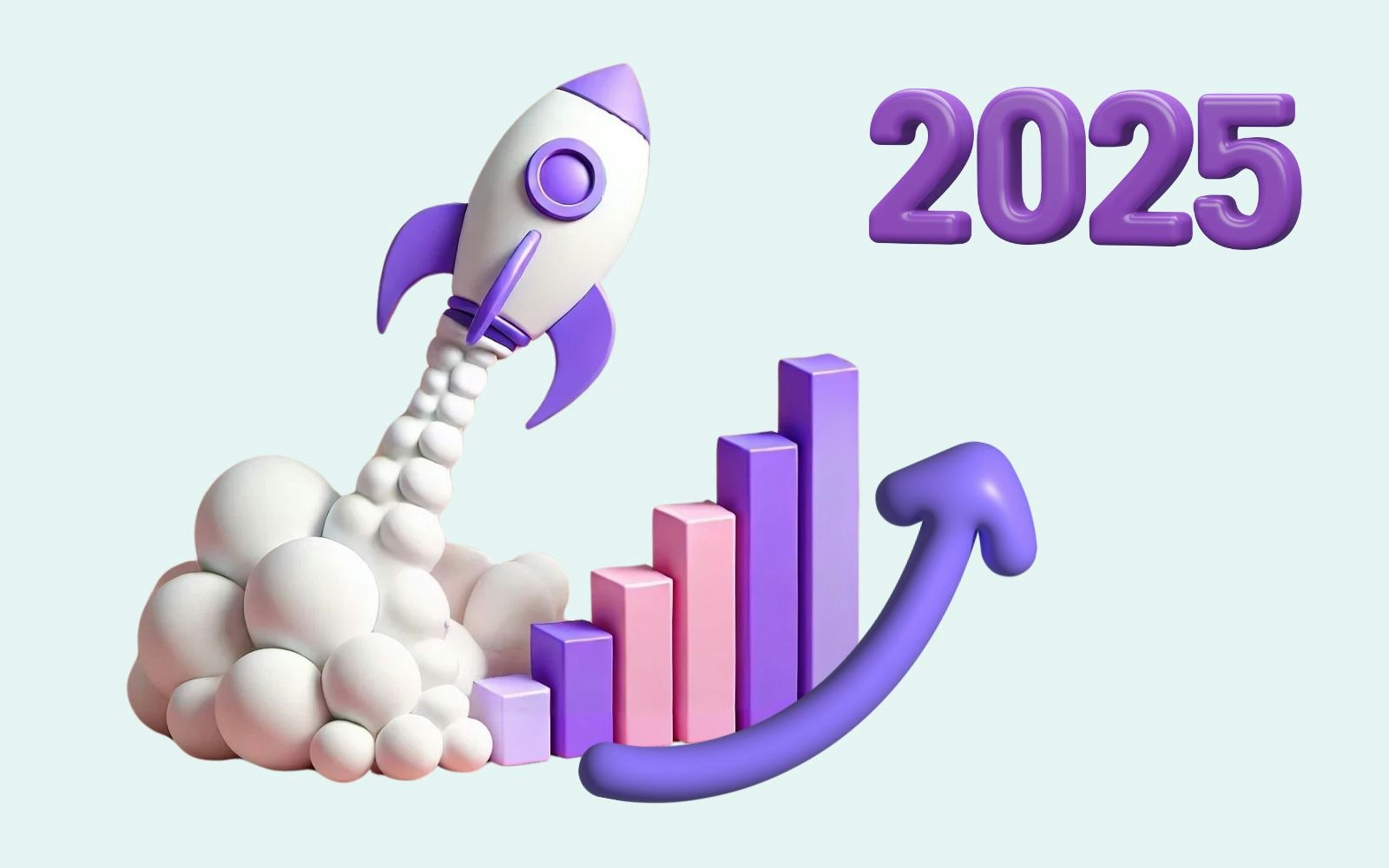
Discover the key marketing trends for 2025
7min • Last updated on Mar 31, 2025

Olivier Renard
Content & SEO Manager
According to a study by Adobe, over 40% of Americans use TikTok as a search engine. This figure even rises to 64% for Generation Z.
On the eve of the year 2025, marketing is undergoing a rapid transformation. This is being driven by technological advances, changes in consumer expectations and the emergence of new strategies.
Brands need to anticipate these changes to remain competitive and adapt to a more complex market. Explore the 8 key trends that will shape marketing in 2025.
The 8 marketing trends of 2025
1️⃣ Social Commerce
Social commerce is transforming the online shopping experience by integrating e-commerce functionality into the heart of social networks.
A few years ago, Instagram launched its shopping function. Fluid and immersive, it allows e-tailers to create a catalogue that can be accessed from the application.
But it is TikTok that is currently the most innovative when it comes to social commerce. After the viral #TikTokMadeMeBuyIt, the video platform created a buzz by integrating AI avatars, the digital twins of influencers.
During Black Friday 2024 in the United States, the Chinese giant hosted more than 30,000 live shopping sessions and generated $100 million in transactions in a single day. A phenomenon that is gaining ground in Europe: TikTok Shop was launched this month in Spain and Ireland.
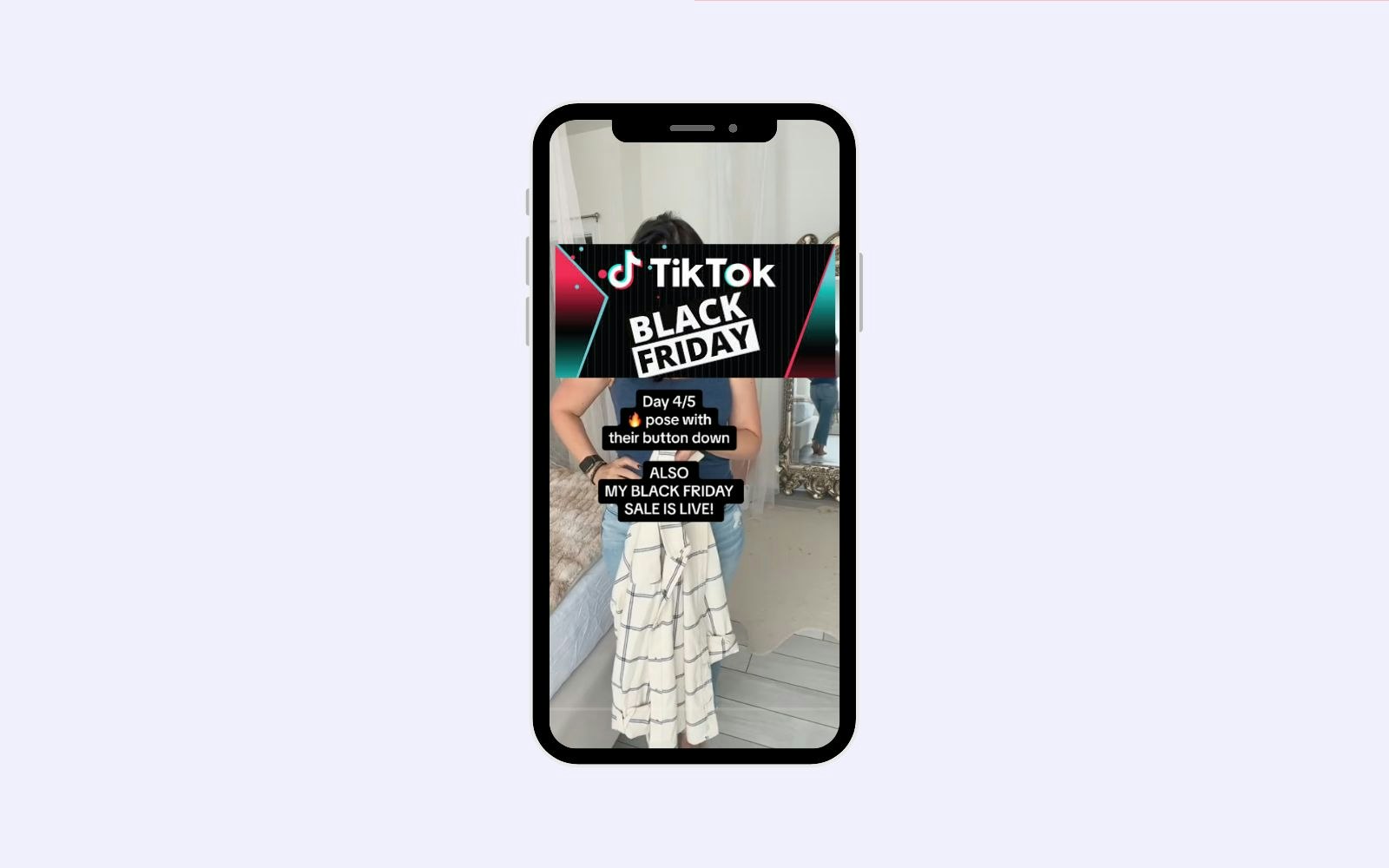
TikTok live shopping black friday 2024
2️⃣ Search AI and personal assistants
The integration of AI into search engines is transforming the way consumers interact with brands. Tools such as Google AI Overviews, Search GPT, Perplexity and Bing Copilot no longer simply present a list of results. They provide instant, contextual and personalised answers.
These engines are evolving into true personal assistants, capable of dialoguing with the user. Users expect fast, relevant information, sometimes without visiting traditional websites.
This development represents both a challenge and an opportunity for brands. They need to optimise their content to appear in these new interfaces and establish their digital authority. The aim: to be perceived as reliable and relevant by AI algorithms.
Even if Google remains predominant, search is no longer limited to traditional search engines. It now extends to :
Social networks (TikTok, Instagram, Pinterest, Youtube, Linkedin), in particular via the video format
Marketplaces via retail search (Amazon, eBay, Rakuten)
AI response engines (AI Overviews, Search GPT, Perplexity, Bing Copilot)
Brands must rethink their digital presence to engage audiences increasingly seeking personalised interactions.
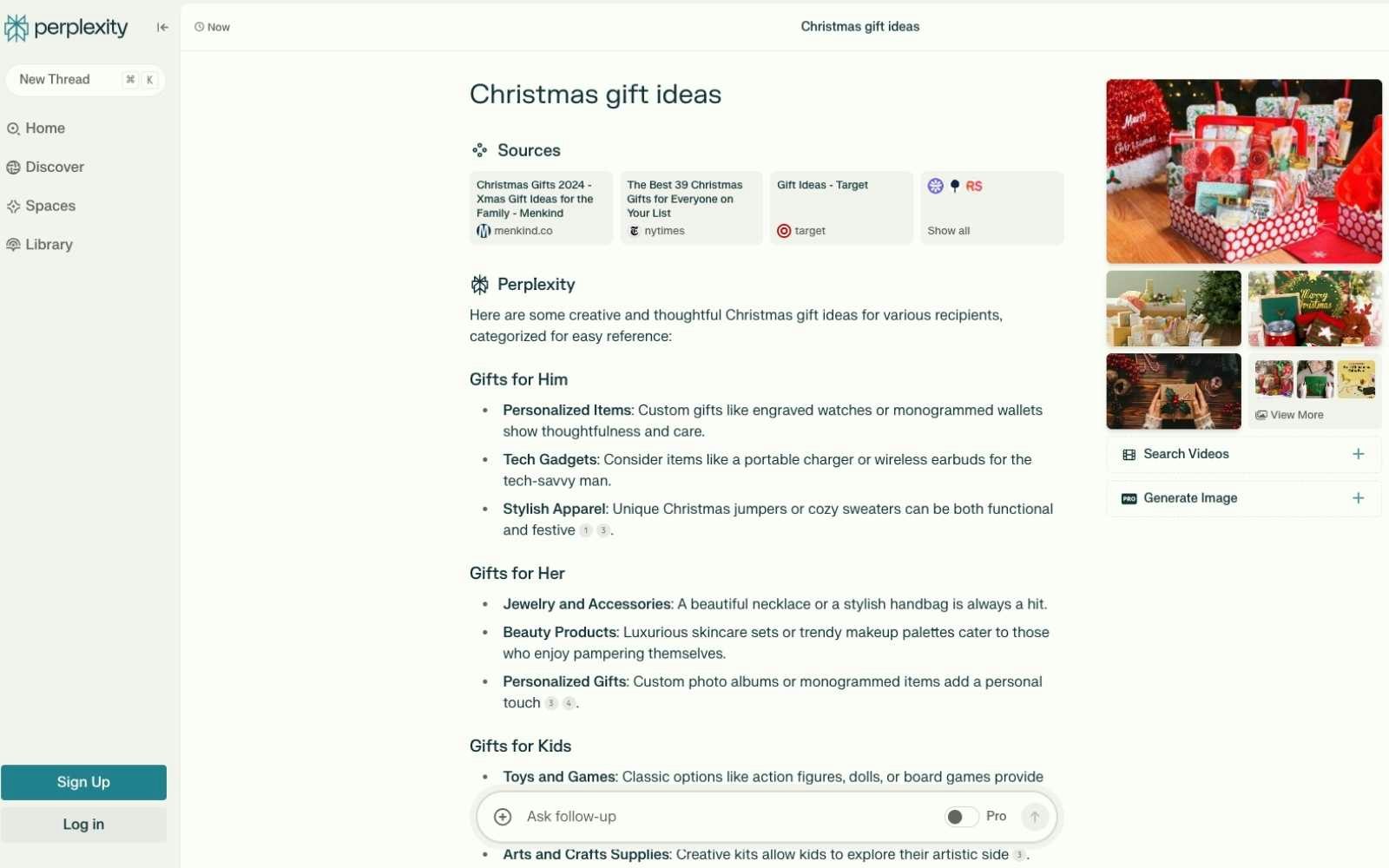
Christmas gift ideas (Perplexity AI)
3️⃣ Branding and digital authority
As a consequence of this evolution, establishing a digital authority is becoming an essential prerequisite. Consumers are no longer content to simply buy products: they like companies that are aligned with their values, capable of demonstrating genuine expertise.
Google highlights this principle with its EEAT concept (Experience, Expertise, Authoritativeness, Trustworthiness), used to assess the quality of online content.
Brands will need to build a strong image based on authentic, trustworthy content. And they need to ensure that their communications are consistent across traditional and digital channels.
Press relations play a key role in this approach. The same applies to video content, webinars and podcasts. A mention by a reliable source, such as a specialist media outlet or an opinion leader, reinforces your company's legitimacy.
It is often considered the 'new backlink', as the digital authority it establishes enhances your visibility in AI-driven search engines. And it improves your conversion rate and loyalty.
4️⃣ Unified commerce, IoT and the phygital experience
Unified commerce, blending physical and digital experiences, is set to become a key marketing trend for 2025.
Omnichannel is a top priority for brands aiming to deliver a seamless customer experience. This approach connects every point of contact to meet consumer expectations.
Unified commerce goes even further. It aims to enhance the customer experience from one end of the chain to the other, to improve engagement and loyalty.
At Zara, customers can book their fitting room via a mobile app to avoid waiting. Connected fitting rooms allow customers to scan items, check availability or request a different size.
With the Pay & Go system, customers can pay directly from their smartphone, without having to go to the checkout. These innovations make the in-store experience faster and smoother.
Brands that invest in phygital differentiate themselves by creating immersive, personalised experiences that fully exploit the advantages of digital.
👇 Find out more about how we can help you.
Personalising the customer experience at Galeries Lafayette
Find out how DinMo's composable CDP has increased lifetime value
5️⃣ WhatsApp / RCS and conversational marketing
Conversational marketing continues to develop thanks to tools such as WhatsApp Business and RCS (Rich Communication Services). These interactive and instantaneous channels offer brands new ways of communicating directly with their customers.
WhatsApp is emerging as a key tool for customer service and promotion. In India, more than 15 million small businesses use WhatsApp to manage their business interactions.
The country alone represents a market of 500 million users, who can pay directly within the app. Brands exploit this proximity to send notifications, order confirmations or exclusive offers. [Update 13 February 2025] You can now insert a button on your Google Business Profile to contact you by WhatsApp or text message.
RCS, often seen as the evolution of SMS, enriches conversations with images, action buttons and interactive carousels. It enables companies to improve engagement while retaining the simplicity of a text message.
With these tools, conversational marketing fits perfectly into an omnichannel strategy. It humanises the customer relationship, encourages conversion and strengthens loyalty by offering fluid, interactive experiences.
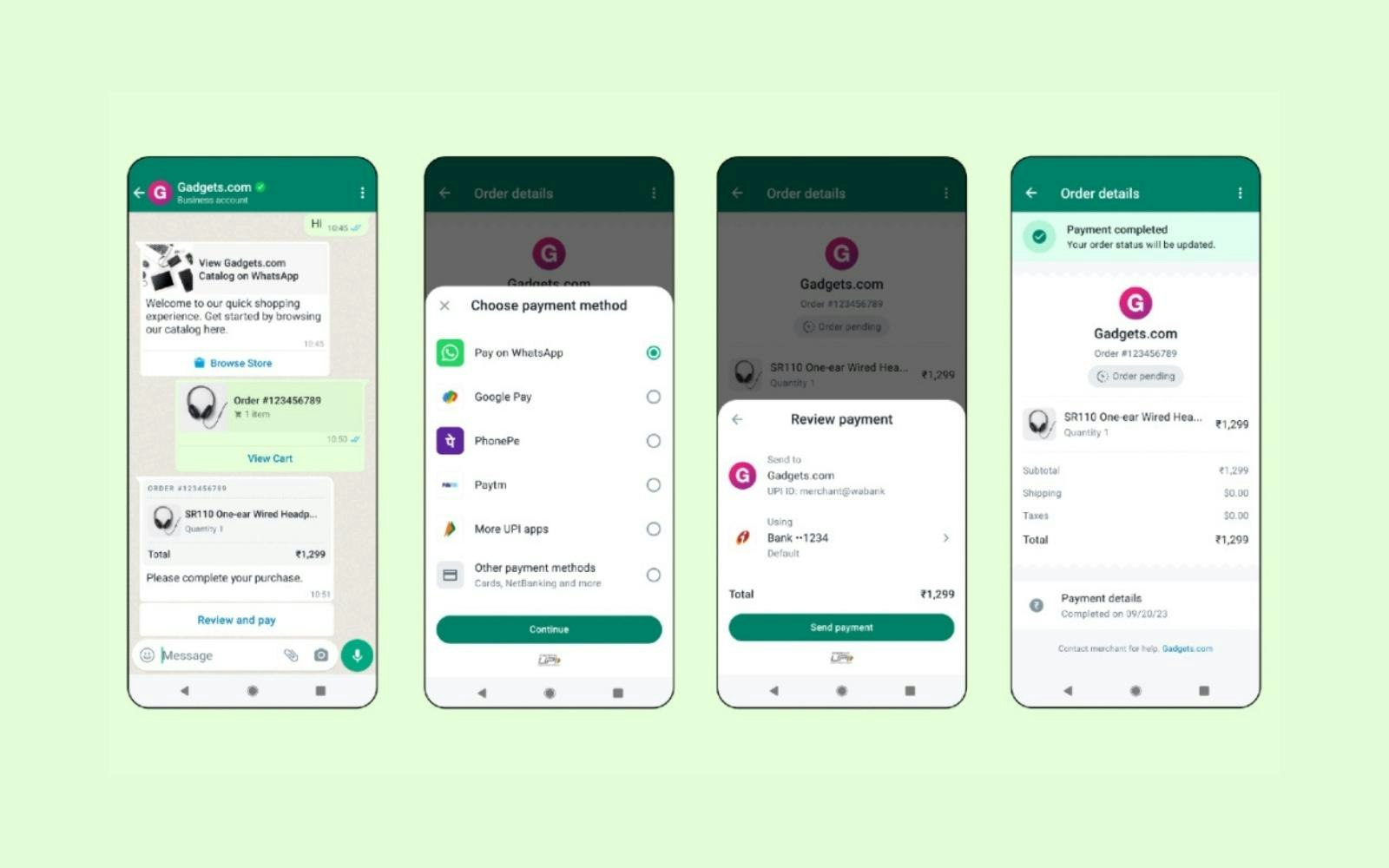
Conversational marketing (Source: WhatsApp)
6️⃣ Sustainability and responsible marketing
Granted, it's a trend that's already well established. Sustainability and responsible marketing will continue to be among the key issues of 2025. Consumers, particularly the younger generations, expect brands to make a commitment to the environment and adopt responsible practices.
According to a Capgemini report, 79% of consumers modify their purchases to take sustainability into account. It's a strategy that's paying off for companies: 64% of those questioned said they were more loyal to brands that demonstrated their commitment to the environment.
Responsible marketing goes beyond rhetoric. It involves concrete actions, such as using recycled materials, reducing packaging or promoting second-hand goods.
Brands such as Patagonia and Stella McCartney are setting an example by placing sustainability at the heart of their strategy. Patagonia actively campaigns to protect the environment, while Stella McCartney innovates with ethical materials such as vegan leather.
7️⃣ Cookieless tracking and first-party data: ushering in a new era.
Announced in 2020, planned for 2022, postponed until 2024... The disappearance of third-party cookies on Chrome was supposed to mark a major turning point for digital marketing. And even though Google has decided to keep third-party cookies, its new experience forces the use of cookieless solutions and first-party data.
Companies will have to rethink their data collection and use strategies. As tracking becomes less invasive on the browser side, it will be switched to the server side. First-party and even zero-party data, collected directly from users, offers huge potential.
These insights enable us to better understand customer preferences while respecting their privacy. Companies that adopt this approach are boosting consumer confidence.
A study by PWC reveals that 80% of French people consider data protection to be a key criterion for placing their trust in a brand. It is therefore a strategic lever for reassurance and loyalty.
Thanks to DinMo's Reverse ETL, brands can activate this data in real time to offer personalised experiences that comply with current regulations.
8️⃣ From generative AI to predictive AI
An article on marketing trends in 2025 and not a word about AI? Of course, it's impossible to ignore this tidal wave that is transforming marketing.
Since ChatGPT was opened up to the general public two years ago, all eyes have been on the uses of generative AI. 2025 will put predictive AI back in the spotlight.
Predictive AI doesn't just analyse the past: it anticipates behaviour in order to personalise every interaction.
In marketing, this means recommending products based on buying habits, choosing the ideal time to send an email or detecting a risk of churn. These predictions help brands enhance customer engagement and drive conversions.
A McKinsey report points out that companies that use AI to personalise their campaigns increase their revenues by between 5% and 15%. To remain competitive, brands need to integrate tools capable of accurately exploiting this data.
The DinMo composable CDP is part of this dynamic. The predictive attributes make it easy for all teams to personalise campaigns, without any technical knowledge. It's a revolution in terms of delivering customised experiences on a large scale.
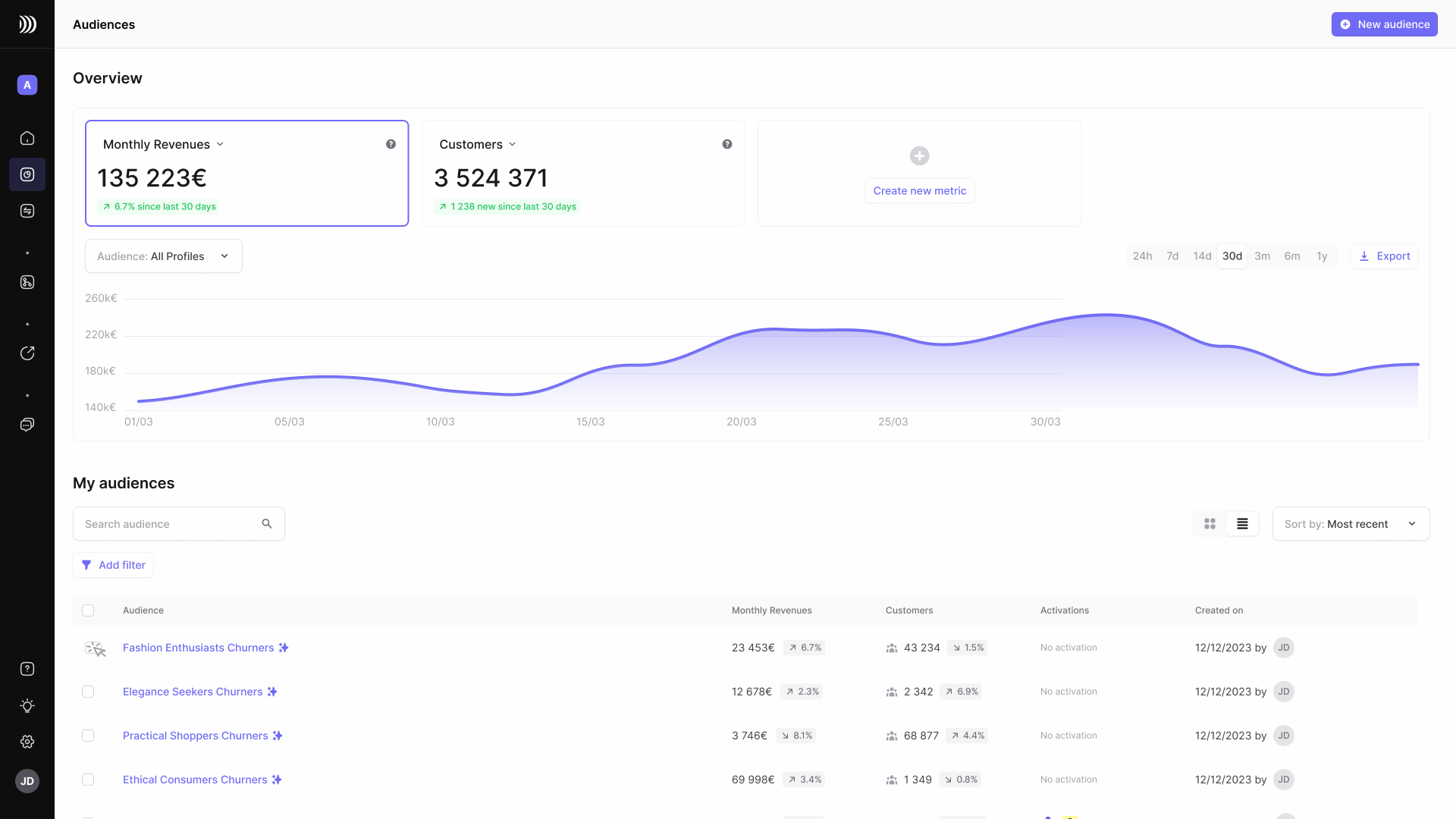
One-click activation
How can you incorporate these trends into your marketing strategy?
Set priorities in line with your objectives
Not all trends apply to your business. Identify those that best meet your strategic objectives: improving customer loyalty, strengthening your digital authority, or capturing new segments.
Break them down into measurable actions, and prioritise those that have the greatest potential impact on your audience and your results. You'll be able to concentrate your efforts on initiatives that contribute to achieving your objectives.
Invest in key technological tools
Adopting the right technological tools is at the heart of these 2025 marketing trends. Thanks to artificial intelligence solutions, automation platforms and data analysis, you can personalise customer experiences, anticipate their behaviour and measure the impact of your campaigns.
These technologies will enable you to respond effectively to consumers' evolving expectations. In particular, the use of predictive AI tools enables the development of targeted marketing campaigns with a data-driven approach.
Analyse your results and adjust your actions
To maximise the effectiveness of your initiatives, adopt a data-driven approach. Track key performance indicators (KPIs) to measure the performance of your campaigns and adjust your actions.
This proactive approach will enable you to fine-tune your strategy based on the results obtained. Encourage a culture of feedback within your organisation, and promote collaboration between departments. A brand's visibility and its ability to offer a unique experience is a matter for all the teams involved.
Conclusion
Marketing in 2025 will be agile and customer-centric. Consumer expectations are changing rapidly, as are the tools and technologies available to them.
In 2025, marketing strategies will have to adapt to a changing environment and remain customer-focused. The aim: to create personalised, relevant experiences to build lasting relationships based on trust.
Anticipate change to stay competitive. Focus on the quality and consistency of your content, analyse the results and adjust your actions. More than ever, harness the power of your data thanks to the potential of artificial intelligence.
✨ DinMo supports marketers in this transformation. Our CDP enables data segmentation and activation, without any technical knowledge.













